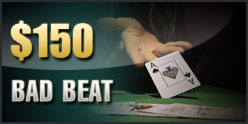Estoril Sol is owned by Portuguese operator Sociedade de Turismo e Diversões de Macau (STDM). The parent company saw their profits drop by 95% in 2014 and they blame those losses on increased taxes from the government and dwindling revenue due to illegal casinos. To add insult to the injury the government opted to hand out online gaming licenses to new companies rather than offer them exclusively to existing land-based operators.
President Dalia Grybauskaitė of Lithuania has signed amendments to the country’s gaming law which could lead to the supervision of online gambling in the country.
Macau's Gaming Inspection and Coordination Bureau has warned consumers against participating in online gaming, following public enquiries about sites which claim to be authorised by the regulator.
Senet Group, the independent gambling self-regulator, is running some new television, online and radio advertising that reminds people partaking in gambling to no bet more than they can afford, that they shouldn’t chase losses and that doing so is a #badbetty.
The advertisements use a play-on-words to the 1977 Ram Jam song Black Betty and now feature a slightly different lettering in its “When the funs stops stop” banners that are displayed alongside key sporting events.
Ron Finlay, the Senet Group’s chief executive, said: “Our research shows that gamblers are getting the message, but we want to keep reinforcing it.”
In a statement on the Senet Group website, Finlay went on to say that the Group has added guidance which strengthens the restrictions on its members’ advertising.
“Members committed no to advertise gaming machines in betting shop windows and now we’ve clarified that this extends to ‘tournaments’ too. We’ve also added guidance to include trackside hoardings shown on TV within the restrictions that apply to TV advertising before the 9pm watershed.”
The Senet Group was established in September 2014 with the goal of helping to prevent problem gambling. It was created by four of Britain’s most prominent gambling companies, namely Paddy Power, Coral, Ladbrokes and William Hill in response to public concerns on gambling and gambling advertising.
Any gambling operator can become a member and all member commit to:
▪ Dedicate at least 20% of shop window advertising to responsible gambling messages
▪ Withdraw all advertising of gaming machines from betting shop windows
▪ A voluntary TV advertising ban on sign-up offers, such as free bets and free money, before 9:00pm
SACRAMENTO, Calif. (AP) — Gov. Jerry Brown has named one of his top spokesmen to lead regulation over California's gambling industry.
As the Italian government gets ready to modify the country's gambling regulation to introduce more stringent measures on slots rooms and TV advertising, opposition leader Beppe Grillo has asked the Parliament to discuss a bill that aims to introduce "a full ban on gambling advertising."
Old memories were drudged up late last week as one of online poker's most successful players, Cole South (pictured), was interviewed by Joe "Chicago Joe" Ingram on his Poker Life podcast. The podcast was quite lengthy – about three hours – so there were plenty of topics discussed, but one of particular interest was about a controversial incident from more than five years ago that resulted in Full Tilt pro temporarily getting his "Red Pro" status stripped.
Shane Bridges, Director of Social Media and Affiliate Marketing at Lock Poker talks with pokerfuse about the pending collapse and loss of players’ funds at the US facing offshore online poker room.
SACRAMENTO — Key stakeholders in California’s online poker debate – including tribes, card rooms and tracks – have finally found an issue they can agree upon.
Bwin.Party Digital Entertainment Plc (BPTY), one of the largest online gambling operators in Europe, said it’s close to selling its social gaming business and is in continuing merger talks with other parties.




















